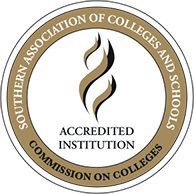The Master of Arts in Marriage and Family Therapy online MFT program is designed to provide graduate coursework to those seeking to work with couples and families as a licensed marriage and family therapist. The MFT degree online emphasizes the development of research-supported counseling skills from a Christian worldview. The LMFT degree consists mostly of classes offered online, but there are required on-campus classes due to state mandates that apply to all MFT programs online.
Online MFT Program Overview
The LMFT degree coursework provided meets the academic requirements for licensure as a Licensed Marriage and Family Therapist in the state of Texas. Students complete a three-semester practicum, consisting of a minimum of 700 clock hours, in a University-approved counseling setting under the supervision of a licensed marriage and family therapist supervisor, as part of the MFT degree online. Our online MFT program provides one of the shortest counseling degrees compared to other MFT programs online.
Before becoming a Marriage and Family Therapist, the graduate must pass the national licensure examination administered by the Association of Marital and Family Therapy Regulatory Board (AMFTRB) or the State of California marriage and family therapy licensure examination as well as the state MFT Jurisprudence Exam and complete a supervised work experience (3,000 hours) in marriage and family therapy services under the supervision of an LMFT-S.
Master of Marriage and Family Therapy Degree Plan
Requirements for the Online MFT Degree
This MFT degree online program is 60 hours of graduate coursework. Students must maintain a minimum GPA of 3.0, complete all courses with a grade of “C” or higher, and satisfactorily complete a comprehensive examination.
This program includes one 16-week intensive, requiring each student to be on campus for one week during the intensive course.
For students seeking certification or licensure inside the State of Texas: Programs offered at HCU designed to fulfill the educational requirements for a specific professional licensure or certification do meet the educational requirements for the State of Texas.
For students seeking certification or licensure outside the State of Texas: Students seeking certification or licensure from any state other than Texas should check with their state licensing board to determine eligibility. Houston Christian University has not determined whether their program of study meets the students state licensure requirements. Please check the Professional Licensure Directory for more information.
Admissions and Aid
If you’re ready for a fulfilling journey in Marriage and Family Therapy, Houston Christian University welcomes you to apply. Get started today:
- Explore next steps: Submit your application, FAFSA, transcripts, and required documents.
- Tuition and financial aid: Review tuition and fees, federal aid, scholarships, and deadlines.
- Get advising: Contact us for admissions and academic advising.
Online Admission Requirements
Students are required to submit transcripts showing they achieved a high school general or advanced diploma or a GED with passing scores. (Waived if student has 32 credit hours or more of transfer credit.)
Students must submit all college transcripts from any previously attended institutions. Official transcripts should be sent directly from the college or university that awarded your bachelor’s degree to be considered official. Transcripts from any additional coursework since that time should also be submitted including postbaccalaureate or graduate-level transcripts.
You may be accepted with unofficial transcripts by emailing copies to OnlineVerification@HC.edu; however, you must submit the official transcripts in a sealed envelope from the school or through an approved electronic service by your second semester.
Mailing Address
Houston Christian University
Attention: Online Admissions Verification
7502 Fondren Road
Houston, TX 77074-3298

Houston Christian University is accredited by the Southern Association of Colleges and Schools Commission on Colleges to award associate, baccalaureate, graduate and doctoral degrees.

